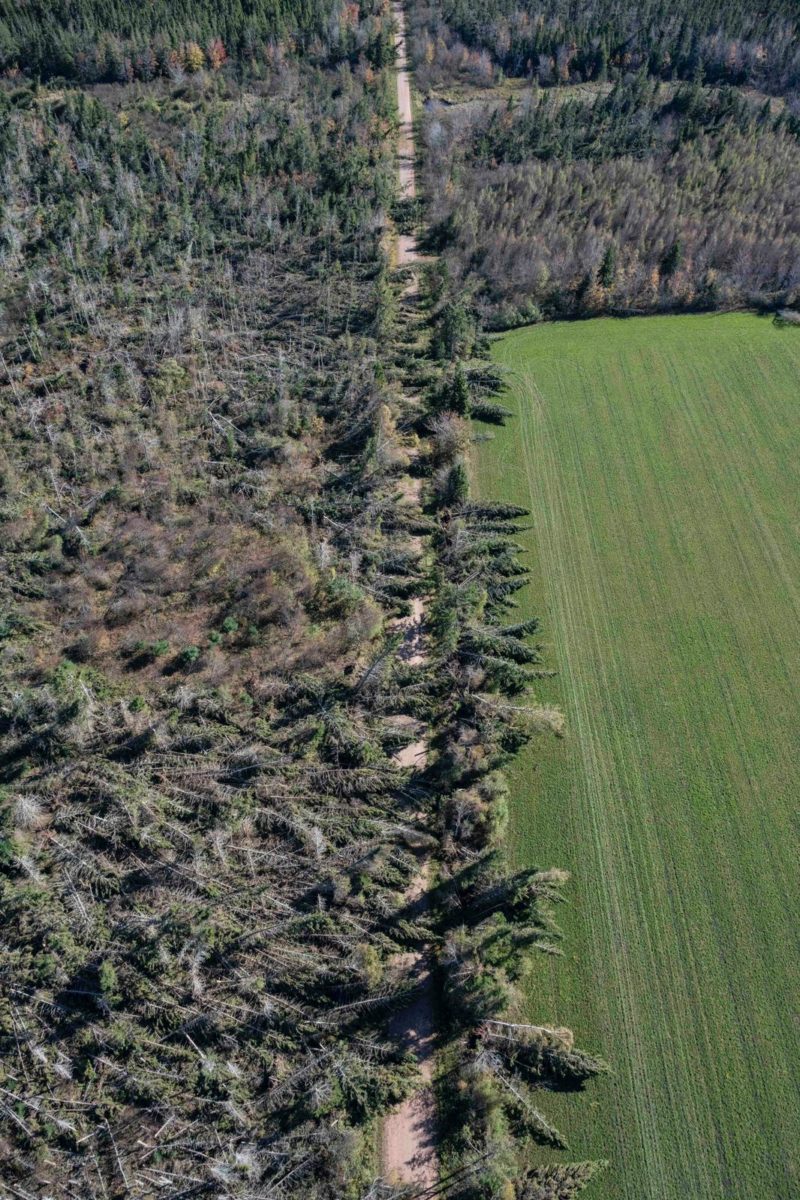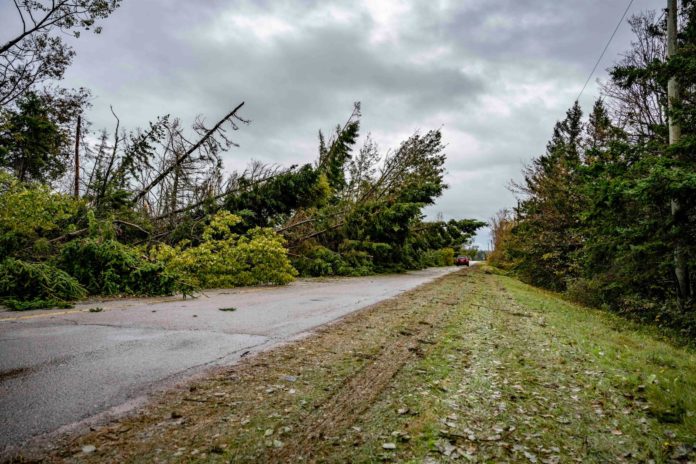After Hurricane Fiona ravaged Atlantic Canada, leaving thousands with property damage, members of the Canadian Armed Forces (CAF) were deployed to help with recovery efforts.
The military is helping to clear away debris, restore power to homes and repair damaged infrastructure.
Bea Aldea, a member of the 4th Artillery General Support Regiment at 5th Canadian Division Support Base Gagetown, was sent to Charlottetown to help with the clean-up.
“From what I have seen, there’s a bunch of telephone poles, power poles and trees covering driveways, roads, backroads and stuff like that,” said Aldea.
She said the military has focused on trying to speed up the process to get the power back on as soon as possible and is collaborating with Maritime Electric on Prince Edward Island and NB Power so residents can go back to their day-to-day activities.
Despite the intensity of the job, Bea said the warm welcome from the local community is the thing that keeps them going.
“The locals here are great. It is nice when we clear up someone’s driveway, or when somebody sees us and asks us to help clear their driveway, and they are incredibly supportive and grateful,” said Aldea.
Alex Murphy, a student from St. Thomas University, comes from the countryside in P.E.I. and said the rural areas were without power for a week, meanwhile cities had their power restored sooner.
“My boyfriend, who lives in the western part of the island, only went without power for three days,” she said. “[My family] went without power for a week, it was only restored on [Oct. 1].”
Murphy adds that in her community in York, many properties were partially destroyed, which will affect their economic activities.
“Farms had giant trees fall on barns and ruin them, as well as injure many animals,” she said.

Murphy will be going back home for Thanksgiving, so she is grateful the military is now helping clean up all the leaves and brush from the trees that were broken and scattered around.
Alexis Levesque has worked with the military on P.E.I. for a week and said the power is at 90 per cent back and they are working with companies to get the energy to rural islanders.
He also thanks islanders for supporting them and reassures them they are working as fast as they can to open up roads and infrastructure.
“[Islanders are] bringing us food and they’re waving at us,” he said. “That’s why we’re happy to be here and just help them; put a smile on their face and our faces as well.”
Prime Minister Justin Trudeau announced on Oct. 4 that the $300 million Hurricane Fiona Recovery Fund would help the east coast recover from the natural disaster.
Levesque said the immediate response units will be on the ground until provinces no longer require them.
“It’s been long days, short nights and we’ve been cutting trees working all day,” he said.

